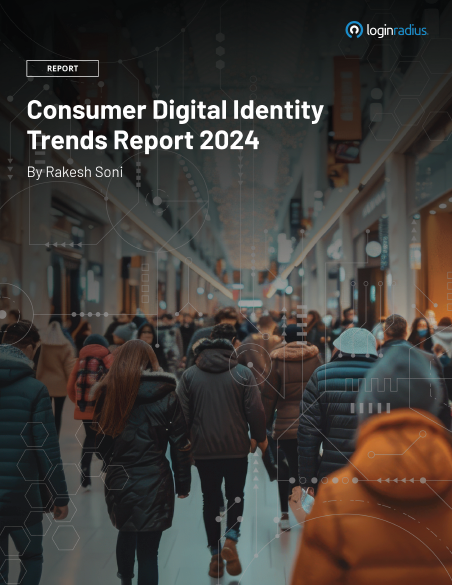With the availability of internet payment options for all types of expenses, ensuring consumer's data security has become the foremost concern of all businesses – e-commerce and otherwise. Global companies spend approximately $3.86 million in data breaches due to inadequate account security. This is only expected to increase as hackers find new methods to make data vulnerable. By 2025, cybersecurity is expected to cost the world $10.5 trillion annually.
Despite how well a business's security measures might be planned and executed, it is impossible to make their data immune from breaching. Companies will have to constantly upgrade their security and verification systems to ensure maximum account security for their consumers. This awareness can easily be found in various companies worldwide that currently spend millions of dollars annually to ensure their consumers’ security.
This increasing concern for security and upgrades makes it important for all businesses to know how to protect consumer privacy. It has brought forth various data security trends that will largely impact digital security in the future.
Data Security Trends That Companies Should Consider in 2021
Any company concerned about their account security will have to stay on top of the current security trends. With continually changing technologies, companies can look for emerging trends that will impact their business function in a positive manner.
Here are five major data security trends to look forward to in 2021.
- AI integration
AI has already been introduced in various digital marketing methods, but this versatile technology can easily be integrated to mitigate digital attacks and security breaches. This is the perfect solution to your questions about how to protect consumer data without too many expenses.
The automation of the entire security process would mean users get an instant alert when their data is wrongfully used or during any other suspicious activity. The additional advantage of AI is that it does not require new protocols to be installed whenever new hacking methods emerge.
- Mobile Security
The pandemic has taught everyone how important and simple mobile banking is, making out handheld devices and tablets vulnerable. Security for these devices can easily be compromised by clicking the wrong link sent to an email address. Companies are now specifically focusing on increasing the security of handheld devices to ensure consumer data protection.
- Zero Trust Model
How should an organization protect the privacy and security of their consumer information? It is entirely possible that users are misusing their account verification. It's in these cases that the Zero Trust Model works.
The Zero Trust Model believes that no user can be trusted, and verification is no longer an option. It supports the theory that all users need to be authenticated, authorized, and verified at regular intervals to ensure they can be trusted with the data in any business hierarchy.
- Automation
Data in any business or organization grows rapidly once the business has found traction. Instead of depending upon manual work to ensure the data is up-to-date, companies are now relying on automation in the form of software and programs. These are specifically created to avoid human errors and increase account security.
- CSaaSP
Cyber Security as a Service Providers (CSaaSP) are companies that specialize in providing robust advanced protection programs and software. These include a security operations center (SOC) where all security is monitored and analyzed, and any data breach or thread is addressed. These are cost-effective, scalable options for companies who don't have the finances to hire in-house experts.
The Importance of Two-Factor/Multi-Factor Authentication
Cybersecurity experts believe that an added step in the log-in process is likely to increase the security of the account and data. Two-factor and multi-factor authentication processes have been integrated into many systems.
When you ask the question 'how do companies protect consumer data, the most common answer is multi-factor authentication. Google provides its users two-factor authentication services during the log-in process for all Google accounts, which increases the overall security of the data.
Integrating a two-factor authentication process adds an extra layer of security for you, the user. Hackers who aim to log in to accounts will have to spend extra time to sign in to your account, during which AIs can easily detect the threat and take appropriate measures.
Multi-factor authentication can easily be done by adding a verification code, personal security question, or biometrics. These can easily be integrated into any business or company to increase overall account security. This reduces the likelihood of fraud and identity theft.
However, integration of the two-factor or multi-factor authentication process can take time, especially because consumers upgrade their account security at their own pace. In the meanwhile, companies can take other security measures to increase their data security.
Five Easy-to-Integrate Steps to Increased Account Security
These steps might seem obvious, but they can make a huge difference in security for your organization's overall security.
- Encrypt sensitive information
All data, regardless of type, size, and content, can be encrypted. Companies can ensure that the data is encrypted as the user goes through the payment process. This enables the user to complete the transaction without worrying about account security. Data encryption isn't a fool-proof step, especially because if the security keys are found, all data can be exposed. However, data encryption is the first step in upgrading any security protocol.
- Optimize backup and recovery
Most businesses use either external backups or cloud services to back up all data about the business organization. However, the backup process and the cloud service can be vulnerable. This is especially true if a company focuses on enhancing their organization's servers and user account security and pays little attention to their data backup facility. This is an easy point of access to any skilled hacker. Optimizing data backup facilities and recovery protocols to detect and avoid any data threats is important.
- Promote compliance and transparency
78% of people lack confidence in their company's security measures. This astonishing number has given rise to the General Data Protection Regulation. GDPR is an EU standard that puts all data security in the hands of the consumers.
GDPR mandates businesses asking their users to regularly check their security settings and personal information (like phone numbers) and closing down accounts that they no longer use or require. Businesses can comply with these standards to increase the data security of their organization.
- Consider cyber insurance
On average, only 5% of any company's folders are protected from outside threats and suspicious activity. The cost of this vulnerability is the reason why several businesses now invest in cyber insurance. A policy for cyber threats usually includes forensic analysis of the data breach as well as monetary compensation for crisis management, legal and regulatory fines, and business losses.
- Install a Password Manager
Businesses that require complicated passwords usually result in users who can't remember these. This, in turn, means that users either abandon their account and create a new one or use ill-advised methods to store their passwords. Using a password manager is similar to writing down all passwords in one place. However, this AI-powered software can improve account security easily by detecting and avoiding all digital threats.
These are the most basic and most well-known methods of upgrading a business's cybersecurity. However, businesses can easily partner with cybersecurity platforms to upgrade their servers. These usually include smart and easy-to-integrate solutions.
How Can LoginRadius' SSO Solution Help Businesses Ensure Consumer Data Security
LoginRadius' Single sign-on solution provides businesses with the option to streamline their consumer's security. It is an authentication method for enterprises that allows users to access multiple applications using a single username and password. The feature is typically designed to make the verification process easier and to provide a consistent experience across various applications, portals, and servers.
What else makes LoginRadius' Single Sign-On an ideal pick for your enterprise? Let's have a look.
- SSO provides a higher level of security. It reduces login to a single set of credentials. These protocols reduce the number of opportunities for mistakes and a hacker taking advantage of human error.
- It let you customize the user experience. It will, for example, allow you to customize your login page to match your company's branding. Apart from the adaptable look, it will also assist you in making changes to your security practices. You can also choose from a variety of authentication options.
- It supports SAML authentication. SAML is a standard for exchanging authentication and authorization data between parties. It helps users to authenticate to web applications without having to remember multiple passwords.
- It enables multi-factor authentication. Since end-users access all of their applications through a single portal, it must be well-secured. Hence, multi-factor authentication comes in handy.
Conclusion
With data at more risk than ever, more users are demanding businesses streamline their user onboarding process while protecting the data at the same time. This usually results in compromising the account security in favor of user-friendliness. As technology advances rapidly, businesses should keep track of the emerging cybersecurity trends and upgrade their data security systems accordingly.














